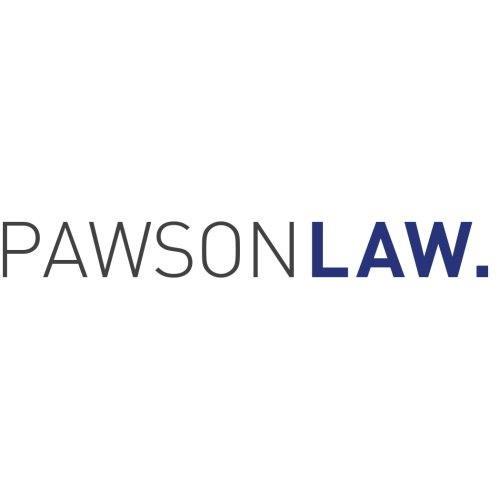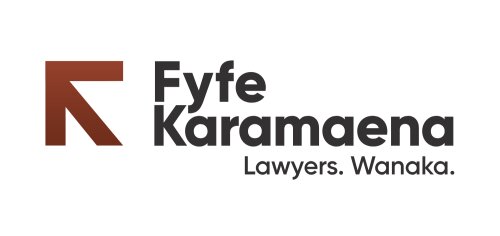Best Sexual Harassment Lawyers in New Zealand
Share your needs with us, get contacted by law firms.
Free. Takes 2 min.
Or refine your search by selecting a city:
List of the best lawyers in New Zealand
About Sexual Harassment Law in New Zealand
Sexual harassment in New Zealand is regarded as a serious violation of an individual's rights to a safe and respectful environment, whether at work, school, or in public settings. It is characterized by unwanted sexual advances, comments, gestures, or behavior that makes the recipient feel uncomfortable, intimidated, or discriminated against. The Human Rights Act 1993 and the Employment Relations Act 2000 are the key legislative frameworks providing protection against sexual harassment, emphasizing both the protection of human rights and fair employment practices.
Why You May Need a Lawyer
There are several situations where seeking legal advice or representation may be crucial:
- If you are experiencing sexual harassment and need guidance on how to report and address it.
- If you are an employee and feel that your employer is not adequately addressing your harassment complaint.
- If you face retaliation or discrimination after reporting sexual harassment.
- If you are an employer who needs to understand your legal responsibilities and how to handle complaints.
- If negotiations or mediation efforts with the harasser or organization are unsuccessful.
- If you are considering legal action or a claim with the Human Rights Commission or Employment Relations Authority.
Local Laws Overview
New Zealand has several key legal provisions aimed at combating sexual harassment:
- The Human Rights Act 1993 prohibits sexual harassment in employment, education, and services sectors.
- The Employment Relations Act 2000 addresses harassment in the workplace and outlines employer responsibilities to provide a safe work environment.
- Employers are legally obliged to take reasonable steps to prevent sexual harassment and respond effectively to any complaints.
- Both employees and employers can access support and mediation services through the Human Rights Commission and Employment Relations Authority.
Frequently Asked Questions
What constitutes sexual harassment in New Zealand?
Sexual harassment includes unwelcome or offensive behavior of a sexual nature, which is either repeated or significant enough to make someone feel offended, humiliated, or intimidated.
Is there a legal time frame to report sexual harassment?
There are no strict deadlines, but it is advisable to report harassment as soon as possible to preserve evidence and enhance the credibility of the complaint.
Can sexual harassment occur outside of employment environments?
Yes, sexual harassment can occur in various settings including schools, universities, public venues, and accommodation services, and is covered under the Human Rights Act.
What steps should I take if I am being sexually harassed at work?
Record incidents, report to a supervisor or HR, and seek legal advice if necessary. It is also helpful to understand your employer's policies on harassment.
Can I file a complaint anonymously?
Complaints may be filed anonymously with some organizations, but it might limit the ability to directly address the issue.
What role does the Human Rights Commission play?
The Human Rights Commission offers guidance, mediation, and support services to individuals experiencing sexual harassment.
What are my employer's responsibilities regarding harassment?
Employers must prevent harassment by implementing policies and responding promptly and effectively to complaints.
Is mediation a necessary step before taking legal action?
Mediation can be a less adversarial and more cost-effective step, but it is not mandatory if the harassment issue warrants legal intervention directly.
Are there penalties for those found guilty of sexual harassment?
Penalties can include compensation to the victim, remedial actions by the employer, and sometimes termination of employment for the harasser.
Can witnesses of harassment also report it?
Yes, witnesses can make reports which can be important for providing evidence and supporting the victim’s case.
Additional Resources
For more information and help, consider reaching out to:
- The Human Rights Commission for advice and mediation services.
- The Employment Relations Authority for workplace disputes.
- Local legal aid and community law centers offering free legal advice.
- WorkSafe New Zealand for workplace safety and health guidance.
- Non-profit organizations like HELP Auckland providing support to victims of harassment.
Next Steps
If you are seeking legal assistance in a sexual harassment case, consider these steps:
- Document all instances of harassment including dates, times, and any witnesses.
- Review your organization's policies regarding harassment and grievance procedures.
- Contact the Human Rights Commission or Employment Relations Authority for advice on mediation or formal complaints.
- Seek a consultation with a lawyer experienced in employment or human rights law to discuss your situation and explore potential legal actions.
- Stay informed about your rights and available support systems to make empowered decisions.
Lawzana helps you find the best lawyers and law firms in New Zealand through a curated and pre-screened list of qualified legal professionals. Our platform offers rankings and detailed profiles of attorneys and law firms, allowing you to compare based on practice areas, including Sexual Harassment, experience, and client feedback.
Each profile includes a description of the firm's areas of practice, client reviews, team members and partners, year of establishment, spoken languages, office locations, contact information, social media presence, and any published articles or resources. Most firms on our platform speak English and are experienced in both local and international legal matters.
Get a quote from top-rated law firms in New Zealand — quickly, securely, and without unnecessary hassle.
Disclaimer:
The information provided on this page is for general informational purposes only and does not constitute legal advice. While we strive to ensure the accuracy and relevance of the content, legal information may change over time, and interpretations of the law can vary. You should always consult with a qualified legal professional for advice specific to your situation.
We disclaim all liability for actions taken or not taken based on the content of this page. If you believe any information is incorrect or outdated, please contact us, and we will review and update it where appropriate.
Browse sexual harassment law firms by city in New Zealand
Refine your search by selecting a city.

















